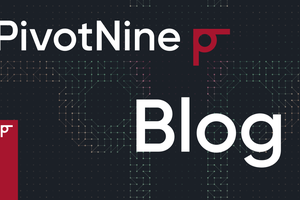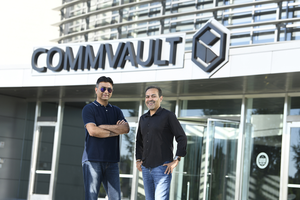Commvault Struggles With Brand Message
Commvault have struggled for some time with a consistent, simple marketing message for the company and its products. In conversation with various Commvault representatives over the past couple of years, I've understood that Commvault wants to be more than just a backup company, but when asked about what, exactly, that means, the conversation has drifted back to how great the company's backup products are.
Alas.
I spoke to newly minted CMO Chris Powell this week about Commvault's brand refresh, and the company's struggle to remain relevant in a rapidly changing market.
While Commvault enjoys a strong customer base who clearly like the company's products, and a strong position in a growth market, things have become a little shaky in the past couple of years. “One of our big challenges was marketing,” Powell acknowledges.
Powell said that the central theme he's working on is “Data as a Strategic Asset”, which has three main elements: protecting data with the single instance store, efficiency with the virtual repository, and the ease-of-use/efficiency of a single solution for all data protection requirements.
Powell also lamented that ‘the market' rewards newness. “Clearly, in this technology space, the shiny new object gets a lot of attention.” While this is true, it's not particularly revelatory. Witness the prevalence of the word “New” when you next walk down a supermarket aisle. “Bringing relevance back to Commvault is a great and interesting challenge for us,” he said.
Well, quite.
I was taught branding by the inimitable Mark Ritson, and I drank deeply of his particular brand of Kool-Aid. He taught us that the best thing you can do as a brand manager is to focus on what makes your brand unique and special. Don't copy others. Be the best you you can be. Be different, not merely better. It's called differentiation, after all, not betteration.
I've been following Commvault for a little while now, since at least 2013, and I revisit their finances periodically such as in this post. Their execution has suffered of late, and a brand refresh is not a bad way to go, if it's done well. Sadly, it looks like Commvault are struggling to get to the core of what that refresh should be about.
Commvault are clearly concerned by all the love that the new and shiny backup companies are getting. The challenge for them is that they aren't a brand new company, so trying to be one means they end up as a poor imitation of a company that actually is brand new. Why do that?
No, what you're trying to do instead is to stay relevant, which is important, but a very different thing indeed. To do that requires going backwards first: research the history of the company and its brand. Why do your existing, best customers love you? What is it about that that remains relevant and applicable to the same needs that the new folks are tapping into?
If it's just the novelty value of something new and shiny, why do you want those customers? It costs money to acquire them, only for them to abandon you when the next new, shiny thing comes along. The Customer Lifetime Value of those customers is much lower than people who will fall in love with you and stay with you for a long time. Are you after a single quarter bump in sales, or longer term growth? What if I told you you could have both? Not everyone bought pet rocks.
Note that I'm not dismissing newer backup providers as pet rocks. They are a serious threat to Commvault's business and need to be taken seriously, but don't chase customers who are impressed by them merely because they're new. Instead, look at why customers are buying from your competitors and not you, and see if there's anything you can do to counter that. It might need new product development work to be done, or it might simply be that they don't realise that you offer a solution to their problem as well, and with additional benefits besides.
Powell is correct that there is a lot of talk about “the modern data centre”. That talk is being driven by new vendors who are fighting to redefine the market to their own advantage, in a battle against large incumbents. It's been driven by the storage vendors for the past few years, but we're seeing the same thing from security companies, and just in the last six months from the new data protection/copy data management folks.
Newer companies and products have a natural advantage of focus. They have no choice but to be focused in order to survive. Fighting to survive focuses the mind. The challenge for larger, established companies with multiple products and offerings to a wider market is that they can struggle to focus.
And so it is with Commvault. They are struggling to find the central core of what Commvault is. What is the company for? Backup and recovery is still necessary, but feels dusty and not as relevant as this newfangled thing called Copy Data Management (which is a horrible term, by the way. Please find a new one, marketers).
Powell says they're aiming for “data as a strategic asset” which is too complex and abstract, but there's some real value inside the term. The trick for Commvault will be figuring out how they can tie their products (like the single instance store) to this idea that your company's unique data is a key source of competitive advantage. Commvault can help you unlock it.
Bingo. Now you've got something that competitors can't easily do, and that has real value to the businesses you're selling to, and it's not a dry and dusty backup story.
Now Commvault just need to figure out how to tell that story in a compelling way.
This article first appeared in Forbes.com here.

